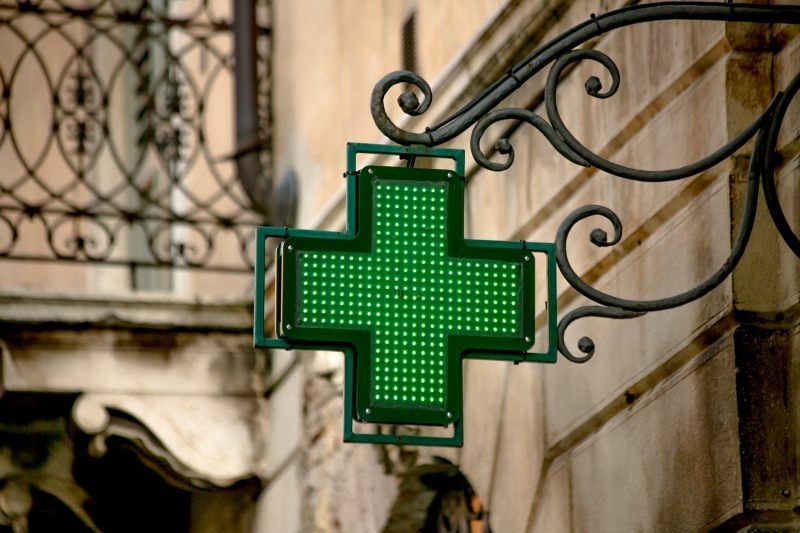Feeling Under the Weather?
As much as we would all love to never get sick and always feel our best, as winter rolls around, getting sick is almost inevitable. Often times being sick puts us at the bottom of our game and can make us feel groggy and miserable. But, getting sick in another country can add a heightened burden, as we may be unfamiliar with the medical system and the standard protocols. In this post I will share tips for if you get sick here in Spain so that your time under the weather can go by smoothly. Keep in mind that I share these tips from the perspective of someone who has recently had to navigate missing work due to experiencing flu like symptoms, and that I am not a medical professional.
I'm feeling sick, but well enough to go to work.
If you are experiencing some kind of malady, but are still well enough to go to work, you might want to take the following course of actions.
- Find a pharmacy near you, and consult a pharmacist about your condition. While not as common in the United States, this is something that almost every Spaniard will do first, especially if they are trying to avoid a visit to a doctor. The pharmacist might recommend an over-the-counter medicine, tell you that a medicine isn't needed, or might tell you to take a trip to the doctor. If the pharmacist tells you to see a doctor, you can follow step number 1 under 'I'm feeling sick, and am not well enough to go to work'.
- Briefly inform your program director about whatever condition it is that you are experiencing. You don't have to share all the details, but a heads up that something is going on can be a good idea, so that if your condition evolves and you wind up having to miss work, this won't be a total surprise.
I'm feeling sick, and am not well enough to go to work.
If you have ASISA insurance, you can call the phone number on your card. Explain that you are feeling sick, and would like to consult a doctor as soon as possible. They will tell you which hospitals are closest to your address, so that you can see a doctor.
To be attended to in English (business hours): +34 91 200 0 200
To be attended to in Spanish (24/7): +34 91 991 1 999
- While it can be scary to go to a hospital in a foreign country, do not fret. While in the United States we will either go to an urgent care or a doctor's office for common illnesses that require immediate evaluation, in Spain, they go to the emergency room. Doctors' offices are commonly reserved for more long-term treatment, annual checkups, or for maladies that don't require immediate care. So, you can treat this visit to the hospital like any other visit to the doctor. In my case, they had me in and out within one hour.
- Before leaving the hospital, make sure to ask for a note from the doctor that will excuse you for the day(s) that you need rest. Beware that a simple justificante or doctor's note probably will not be sufficient. Instead, you will need what is called una baja. This is something that explicitly states that you are prescribed rest, and cannot go to work.
- As soon as you are aware that you will be missing work, contact your program director and let them know that you are going to see the doctor. Let them know that you will keep them updated about the doctor's orders and when they can expect you to return to work. You should also extend the courtesy of informing the teachers with whom you were supposed to work the day of your absence, as they often plan their lessons around your presence in the classroom. When you have your baja or order for bedrest, make sure to share it with your program so that your absence will be excused and you can receive pay for the missed day. In Spain, by law, workers are entitled to at least four days of paid sick time per year. Consult Article 37 of the Workers' Statute to find out more about paid sick leave in Spain.
- If your doctor has prescribed you any medicine, they will do so by handing you the prescription on paper. You can take these prescriptions to any pharmacy and have them filled in real time. You can also ask the pharmacist any questions you have about the medicine. If you don't speak Spanish, and they don't speak English, feel free to use a translator on your phone to make sure you're receiving the information you need.
I write this post with the hopes that you won't ever need to reference it, but with the confidence that if you do, that it can help point you in some of the right directions. Remember to always consult a pharmacist, a doctor, or your insurance company for the best advice in navigating your illnesses.
Related Posts
An Unexpected Yet Required Skill When Moving Abroad
Considering living abroad? Read on to see if you have what it takes!

An American in Spain: Thanksgiving Edition
Where to find ingredients in Madrid for a classic Thanksgiving dinner!

A Long Overdue Update from Spain
Long time no blog! I’m so sorry for the radio silence. Life has been life-ing lately — school started, presentations and lesson planning kicked in, I got sick (more than... keep reading

